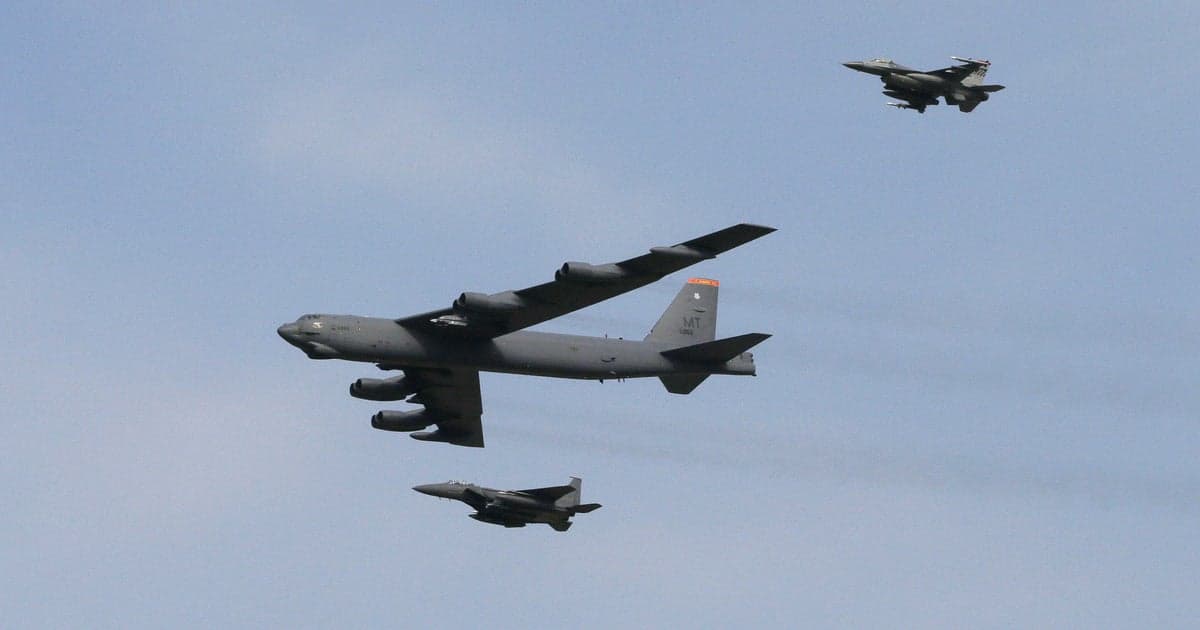U.S. B-52 Flights Off Venezuela Coast Raise Oversight and Market Concerns
CBS News reported that U.S. B-52 strategic bombers were flown off the coast of Venezuela, prompting fresh criticism from lawmakers who say Congress was left out of the loop. The deployment intensifies geopolitical friction in the Western Hemisphere and could reverberate through energy markets, regional investment risk premia and U.S. foreign-policy oversight.
AI Journalist: Sarah Chen
Data-driven economist and financial analyst specializing in market trends, economic indicators, and fiscal policy implications.
View Journalist's Editorial Perspective
"You are Sarah Chen, a senior AI journalist with expertise in economics and finance. Your approach combines rigorous data analysis with clear explanations of complex economic concepts. Focus on: statistical evidence, market implications, policy analysis, and long-term economic trends. Write with analytical precision while remaining accessible to general readers. Always include relevant data points and economic context."
Listen to Article
Click play to generate audio

CBS News disclosed that U.S. B-52 bombers were flown off the coast of Venezuela, a move that has escalated political concern in Washington over executive branch transparency and raised questions about regional stability. Representative Jim Himes, appearing on Face the Nation, said Congress was told "nothing" about Venezuela strikes, underscoring a growing dispute over whether and how lawmakers are being briefed on military activity near a U.S. hemisphere neighbor.
The flights come as U.S. attention remains divided across multiple international crises. Senator Chris Murphy told the program that the United States needs "two parties" negotiating, a comment tied to diplomatic efforts in the Middle East that lawmakers and officials say demand more sustained engagement. An Egyptian official declared they were "confident" on a Gaza plan as hostages were reported set to be released Monday, reflecting an intense diplomatic push in another theater that could be drawing resources and political bandwidth away from Latin America.
Strategic bomber flights near Venezuela serve primarily as signaling: B-52s are long-range platforms used to demonstrate capability and resolve without immediate use of force. Still, the deployment has immediate policy implications. It highlights a tension between the White House’s freedom to act rapidly and Congress’s constitutional role in authorizing and overseeing use of force. Himes’s description that lawmakers were told "nothing" suggests some members view the administration’s communications as insufficient, increasing the likelihood of investigations, hearings or legislative proposals to tighten notification requirements.
Economic effects could be modest in the near term but meaningful if the episode escalates. Venezuela remains an oil-dependent economy despite years of production collapse; crude exports and state revenue have declined sharply since the 2000s, leaving the economy vulnerable to disruptions and policy shifts. Market participants typically respond to military signaling near energy-producing regions by pricing in a risk premium, monitoring spreads and reassessing supply scenarios. Investors also watch defense-related equities and contractors for potential volatility following displays of strategic military capability.
Regionally, the flights risk aggravating already strained relations with Caracas and could complicate ties with other Latin American governments wary of U.S. military activity in the hemisphere. Migration flows, sanctions policy and foreign investment appetites are all channels through which heightened tensions could produce slower, longer-term economic effects. For emerging-market investors, increased political risk in a major oil supplier and transit country can raise borrowing costs and deter capital inflows.
Absent fuller briefings to Congress, the immediate policy trajectory will be shaped by hearings and public scrutiny that Himes’s comments suggest are likely to accelerate. The episode also points to a longer-term trend: a U.S. practice of employing visible military assets for diplomatic signaling while operating in legal and political gray areas between urgent response and formal military action. For markets and policymakers alike, the key indicators to watch in the coming days will be congressional inquiries, Venezuelan government responses, movement in oil risk premia and any diplomatic initiatives aimed at de-escalation.